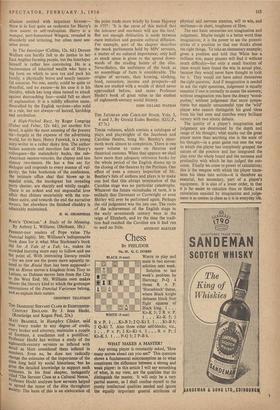ME DOMESTIC SERVANT CLASS IN EIGHTEENTH- CENTURY ENGLAND. By J.
Jean Hecht. (Routledge and Kegan Paul, 25s.) MATT BRAMBLE, in Humphry Clinker, said that 'every trader in. any degree ,of credit, every broker and attorney, maintains a couple of footmen, a coachman and a postillion.' Professor Hecht has written a study of the eighteenth-century servants as inflated with detail as Matt considered them inflated in numbers. Even so, he does not radically change the estimates of the importance of the class long held by social historians; 'but he gives the detailed knowledge to support such estimates. In his final chapter, inelegantly titled 'The Servant Class as a Cultural Nexus,' Professor Hecht analyses how servants helped t° spread the tastes of the elite throughout leIcietY. The basis of this is an elaboration of
the point made more briefly by Jonas Hanway in 1757: 'It is the curse of this natiott that the labourer and mechanic will ape the lord.' But not enough distinction is made between ,mere imitation and genuine cultural diffusion. For example, part of the chapter describes the mock parliaments held by MPs' servants, a matter of no cultural importance; only half as much space is given to the spread down- wards of the reading habits of the elite. Nevertheless, the usefulness of the book as an assemblage of facts is considerable. The origins of servants, their housing, clothing, food, recreation, income and prospects—all these are studied with a wealth of detail never approached before, and make Professor Hecht's book of great value to the student of eighteenth-century social history.
JOHN OILLARD WATSON


































 Previous page
Previous page